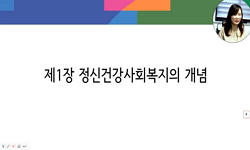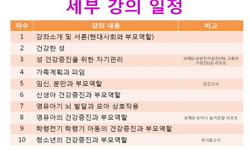Daylight Saving Time (DST) is used worldwide and affects millions of people annually. In the most countries, DST begins turning clocks forward by an hour in the spring and backward by an hour in the fall. transition out of DST in the fall increases th...
http://chineseinput.net/에서 pinyin(병음)방식으로 중국어를 변환할 수 있습니다.
변환된 중국어를 복사하여 사용하시면 됩니다.
- 中文 을 입력하시려면 zhongwen을 입력하시고 space를누르시면됩니다.
- 北京 을 입력하시려면 beijing을 입력하시고 space를 누르시면 됩니다.
https://www.riss.kr/link?id=A104779035
- 저자
- 발행기관
- 학술지명
- 권호사항
-
발행연도
2010
-
작성언어
-
- 주제어
-
등재정보
KCI등재후보,SCOPUS,ESCI
-
자료형태
학술저널
-
수록면
155-163(9쪽)
-
KCI 피인용횟수
0
- 제공처
-
0
상세조회 -
0
다운로드
부가정보
다국어 초록 (Multilingual Abstract)
Daylight Saving Time (DST) is used worldwide and affects millions of people annually. In the most countries, DST begins turning clocks forward by an hour in the spring and backward by an hour in the fall. transition out of DST in the fall increases the available daylight in the morning by one hour. Springtime transition into DST leads to an increase of the available daylight in the evening. During World War I, in an effort to reduce fuel consumption, Germany and England began to practice DST in 1916. Currently, 77 countries and most of OECD adopted DST except Korea, Japan, Iceland. The rationale for Daylight Saving Time (DST) is bolstered by the fact that it increases daylight hours within which the activity a population reaches its peak.
Therefore, the effects of transitions into DST to the public health should be further explored, as DST affects millions of people annually and its impacts are still largely unknown. A general perception is that Turning clock forwards (on spring) or backwards (on fall) by one hour would affect our health. In This study, the association between Daylight Saving Time (DST) and health in population was investigated through theoretical and systemic review studies. Since the study was conducted solely on theoretical grounds, further research is needed to assess additional health-related impacts of Daylight Saving Time (DST) and to carry out more specific analysis on population health in Korea. In conclusion, population health is more strongly affected during spring transition into DST than during fall transition out of DST.
참고문헌 (Reference)
1 Bick PA,
2 Lahti TA, "Transitions into and out of daylight saving time compromise sleep and the rest-activity cycles" 12 : 3-, 2008
3 Lahti TA, "Transition to daylight saving time reduces sleep duration plus sleep efficiency of the deprived sleep" 406 : 174-177, 2006
4 Lahti TA, "Transition into daylight saving time influences the fragmentation of the rest-activity cycle" 19 : 1-, 2006
5 Kantermann T, "The human circadian clock's seasonal adjustment is disrupted by daylight saving time" 17 : 1996-2000, 2007
6 Lee SG, "The brief history of Daylight Saving Time in other countries and energy saving effect" Republic of Korea: Korea Energy Economics Institute 5-42, 2006
7 Monk TH, "Spring and autumn daylight saving time changes: studies of adjustment in sleep timings, mood, and efficiency" 23 : 167-178, 1980
8 Mistlberger RE, "Social influences on mammalian circadian rhythms" 79 : 533-556, 2004
9 Janszky I, "Shifts to and from daylight saving time and incidence of myocardial infarction" 359 : 1966-1968, 2008
10 Schneider AM, "Daytime sleepiness during transition into daylight saving time in adolescents: Are owls higher at risk?" 10 : 1047-1050, 2009
1 Bick PA,
2 Lahti TA, "Transitions into and out of daylight saving time compromise sleep and the rest-activity cycles" 12 : 3-, 2008
3 Lahti TA, "Transition to daylight saving time reduces sleep duration plus sleep efficiency of the deprived sleep" 406 : 174-177, 2006
4 Lahti TA, "Transition into daylight saving time influences the fragmentation of the rest-activity cycle" 19 : 1-, 2006
5 Kantermann T, "The human circadian clock's seasonal adjustment is disrupted by daylight saving time" 17 : 1996-2000, 2007
6 Lee SG, "The brief history of Daylight Saving Time in other countries and energy saving effect" Republic of Korea: Korea Energy Economics Institute 5-42, 2006
7 Monk TH, "Spring and autumn daylight saving time changes: studies of adjustment in sleep timings, mood, and efficiency" 23 : 167-178, 1980
8 Mistlberger RE, "Social influences on mammalian circadian rhythms" 79 : 533-556, 2004
9 Janszky I, "Shifts to and from daylight saving time and incidence of myocardial infarction" 359 : 1966-1968, 2008
10 Schneider AM, "Daytime sleepiness during transition into daylight saving time in adolescents: Are owls higher at risk?" 10 : 1047-1050, 2009
11 Lahti TA, "Daylight saving time transitions and hospital treatments due to accidents or manic episodes" 8 : 74-, 2008
12 Shapiro CM, "Daylight saving time in psychiatric illness" 19 : 177-181, 1990
13 Turek FW, "Current understanding of the circadian clock and the clinical implications for neurological disorders" 58 : 1781-1787, 2001
14 Mistlberger RE, "Circadian rhythms in mammals in Formal properties and envind practice of sleep medicine. 4thed." Elsevier Sauronmental influences 321-334, 2005
15 Monk TH, "Adjusting to the changes to and from Daylight Saving Time" 261 : 688-689, 1976
16 Foerch C, "Abrupt shift of the pattern of diurnal variation in stroke onset with daylight saving time transitions" 118 : 284-290, 2008
동일학술지(권/호) 다른 논문
-
특집/근치적 전립샘적출술에서 개복과 로봇 수술의 역할 및 비교
- 대한의사협회
- 최영득
- 2010
- KCI등재후보,SCOPUS,ESCI
-
- 대한의사협회
- 정재일
- 2010
- KCI등재후보,SCOPUS,ESCI
-
- 대한의사협회
- 임금자
- 2010
- KCI등재후보,SCOPUS,ESCI
-
- 대한의사협회
- 윤철용
- 2010
- KCI등재후보,SCOPUS,ESCI
분석정보
인용정보 인용지수 설명보기
학술지 이력
| 연월일 | 이력구분 | 이력상세 | 등재구분 |
|---|---|---|---|
| 2024 | 평가예정 | 해외DB학술지평가 신청대상 (해외등재 학술지 평가) | |
| 2021-01-01 | 평가 | 등재학술지 선정 (해외등재 학술지 평가) |  |
| 2020-12-01 | 평가 | 등재 탈락 (해외등재 학술지 평가) | |
| 2013-10-01 | 평가 | 등재학술지 선정 (기타) |  |
| 2011-01-01 | 평가 | 등재후보학술지 유지 (기타) |  |
| 2007-01-01 | 평가 | SCOPUS 등재 (신규평가) |  |
학술지 인용정보
| 기준연도 | WOS-KCI 통합IF(2년) | KCIF(2년) | KCIF(3년) |
|---|---|---|---|
| 2016 | 0.33 | 0.33 | 0.48 |
| KCIF(4년) | KCIF(5년) | 중심성지수(3년) | 즉시성지수 |
| 0.5 | 0.57 | 0.815 | 0.12 |






 KCI
KCI






